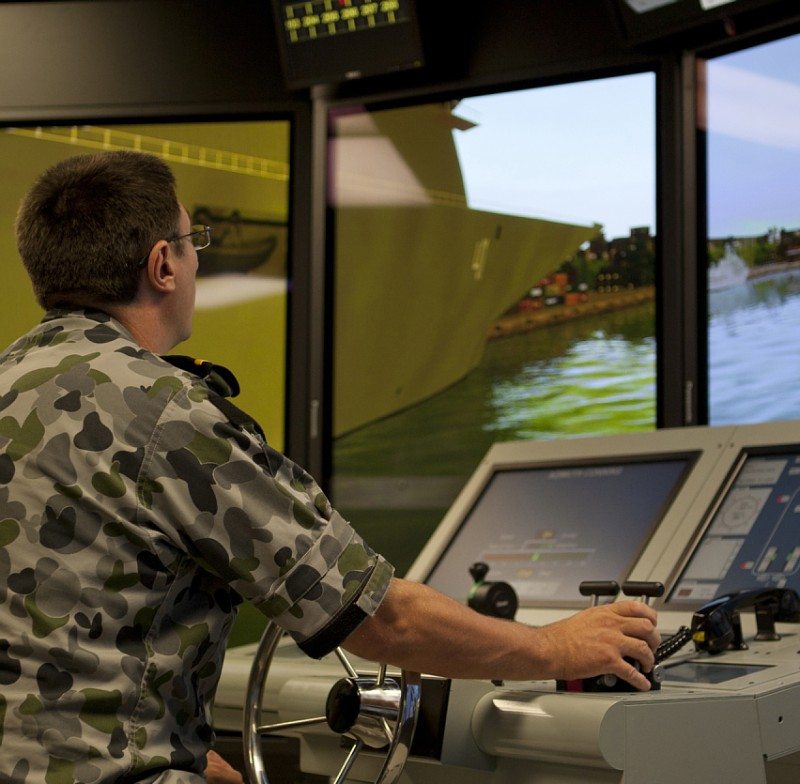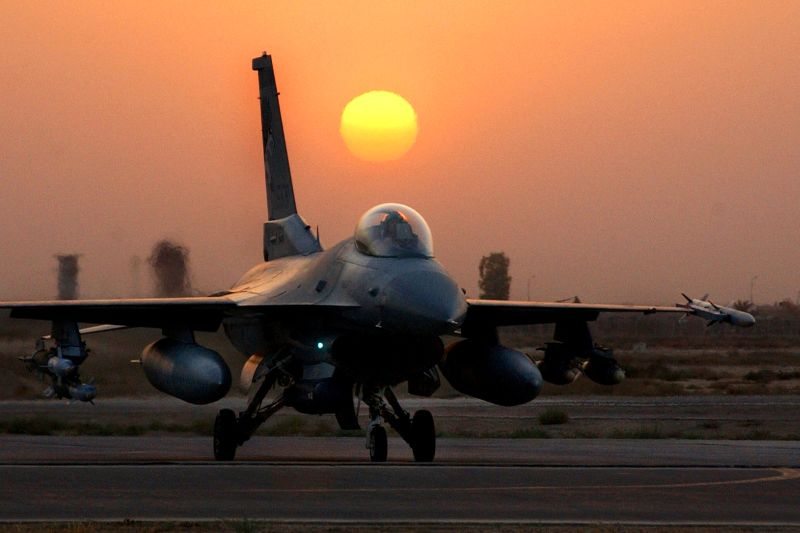Junior officers in the Royal Australian Navy will learn to pilot the next generation of warships, in an upgraded $10m training facility at HMAS Watson, Sydney, which will be officially opened tomorrow.
The new high-tech simulator uses computerized virtual-reality software to simulate a working warship’s bridge, complete with a 240-degree view of a computer generated 2D scene through the bridge windows.
The bridge training faculty, one of the most advanced simulators in the world, will be opened by Commander Australian Fleet Rear Admiral Steve Gilmore.
“This facility is at the cutting edge of simulator technology and provides junior Seaman Officers with very realistic training so they will be capable of carrying out the duties of the Officer-of-the-Watch before heading out to sea,” Rear Admiral Gilmore said.
“Our Navy is the first in the world to use multi flex touch screens in a warship bridge simulator, which increases functionality without cumbersome hardware,” Rear Admiral Gilmore said.
The simulators replicate the full range of maritime operations likely to be experienced while on the bridge of a warship and can be reconfigured to match most classes of ship in the RAN’s current fleet. New functionality includes boat operations, interdiction, and docking and beaching evolutions pertinent to the new Landing Helicopter Dock ships, the first of which is due to enter service in 2014.
“An example of a complex scenario is maneuvering a 3500-tonne warship within 2000 yards of a number of other ships while under air attack, or ships within 50m of each other conducting replenishment-at-sea approaches” Rear Admiral Gilmore said.
With two full-mission simulators and four part-task simulators, the facility allows up to six warship bridge teams to train for specific scenarios in a joint exercise environment or, conversely, run six independent scenarios.
The graphics system can replicate different environmental conditions, from a clear day through to a raging storm, detailed land-and sea-scape features as well as dynamic models of aircraft, tugs and other ships, including the Canberra Class LHDs and Hobart Class AWDs.
A dedication ceremony will also be held for the combined navigation and bridge training faculties, which was renamed the Taylor Building, after former Chief of Navy (1994-97), the late Vice Admiral Rod Taylor AO, a specialist navigation and operations officer.
The ship bridge simulation system was delivered to the Navy by the Defence Materiel Organization on time and under budget. The system was provided by Kongsberg Maritime Simulation & Training, Norway.











